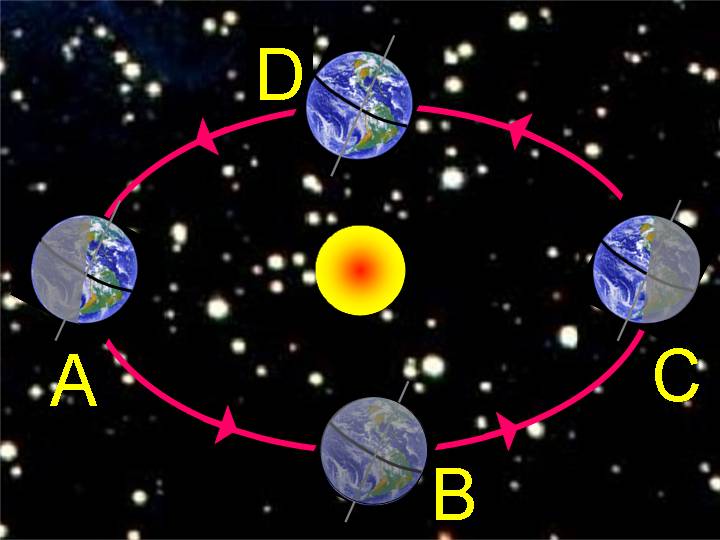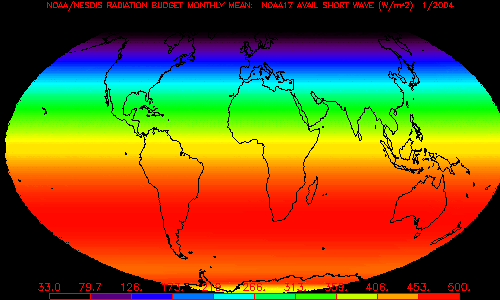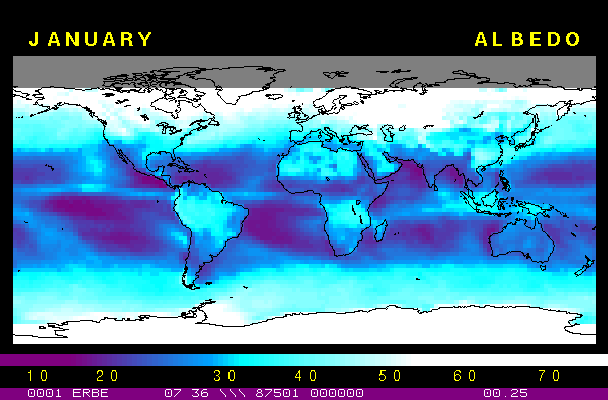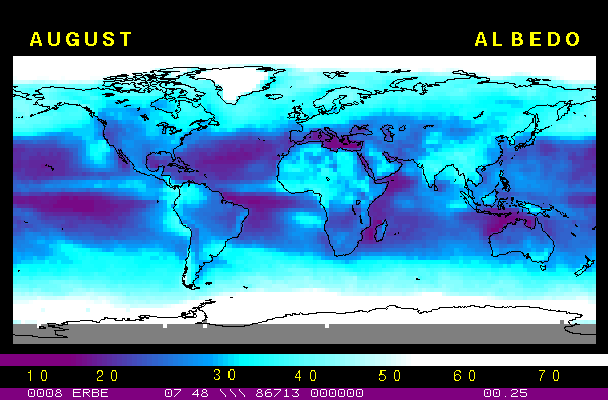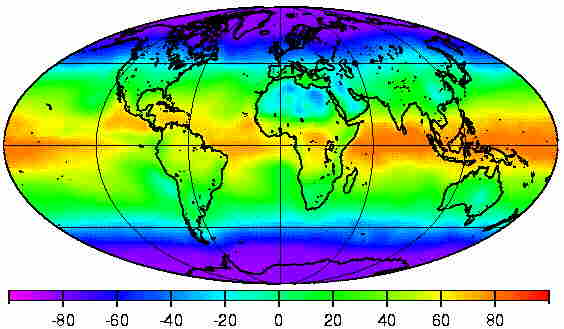 > English > Climate Encyclopaedia > Clouds and Particles > more > 3. Clouds, particles and climate > - Radiation budget
> English > Climate Encyclopaedia > Clouds and Particles > more > 3. Clouds, particles and climate > - Radiation budget
|
Clouds & ParticlesMore |
The radiation budgetThe radiation budget is the balance between the incoming energy from the Sun and outgoing energy from the Earth's surface. Energy from the Sun can either be directly reflected by the surface of the Earth back into space, reflected back into space by clouds or can be absorbed by the Earth and re-emitted as heat. |
Here we look at the global radiation budget and how it affects the Earth's climate. We focus on the impact of humans today and in the future. Observations of radiation budget are made using satellites which measure the amount of radiation emited from the Sun and from the Earth. |
|
Incident energy from the SunThe planet's radiation budget must be in equilibrium so that the Earth doesn't become colder or warmer. Although the climate system is in balance, this balance is dynamic and ever-changing. Satellites above our atmosphere, directed at the Sun, show that the mean global energy striking the Earth is 340 W m-2.
|
Albedo: energy reflected by the EarthSome of the solar radiation striking the Earth is reflected directly back into space. This fraction is called the albedo. Look at images 4a and 4b to see the average albedo of our planet in January and August. The global annual average albedo is approximately 0.3, so about 30% of the solar radiation entering our atmosphere is reflected back into space. Polar regions have high albedos because the white ice is highly reflective.
|
|
|
|
The solar energy which is not directly reflected back into space (70%, around 240 W m-²) is absorbed by atmosphere and by the Earth's surface. This process leads to a heating of the surface and emission of infra-red (long wave) radiation. A proportion of this infra-red radiation is trapped by greenhouse gases in the atmosphere and this natural warming process keeps the mean temperature of our planet at 15 oC. Some areas of the world absorb more energy than they re-emit and should therefore be getting warmer and warmer. In other areas the radiation balance is negative and these regions should be getting colder. This doesn't happen because atmosphere and oceans continuously transport heat from equator to the poles to even up the temperature differences. |
|
5. Global annual mean radiative budget in W m-². Source: LMD/ Scarab. Click to enlarge (22 K)! |
How can the radiation budget change?The amount of energy coming from the Sun can vary. For example, the tilt of axis about which the Earth rotates can vary. Contrasts in the amount of solar energy received between latitudes and between seasons are larger when the tilt is larger. Climate changes due to astronomic variations are defined by Milankovitch theory.
|
The radiative budget can change: |
|
|
Much of the research into our climate focuses on the radiation balance. Understanding the complexity of the controls and feedbacks and how humans modify the fragile equilibrium is a key to predict, and hopefully prevent, future unwanted climate change.
About this page... |


